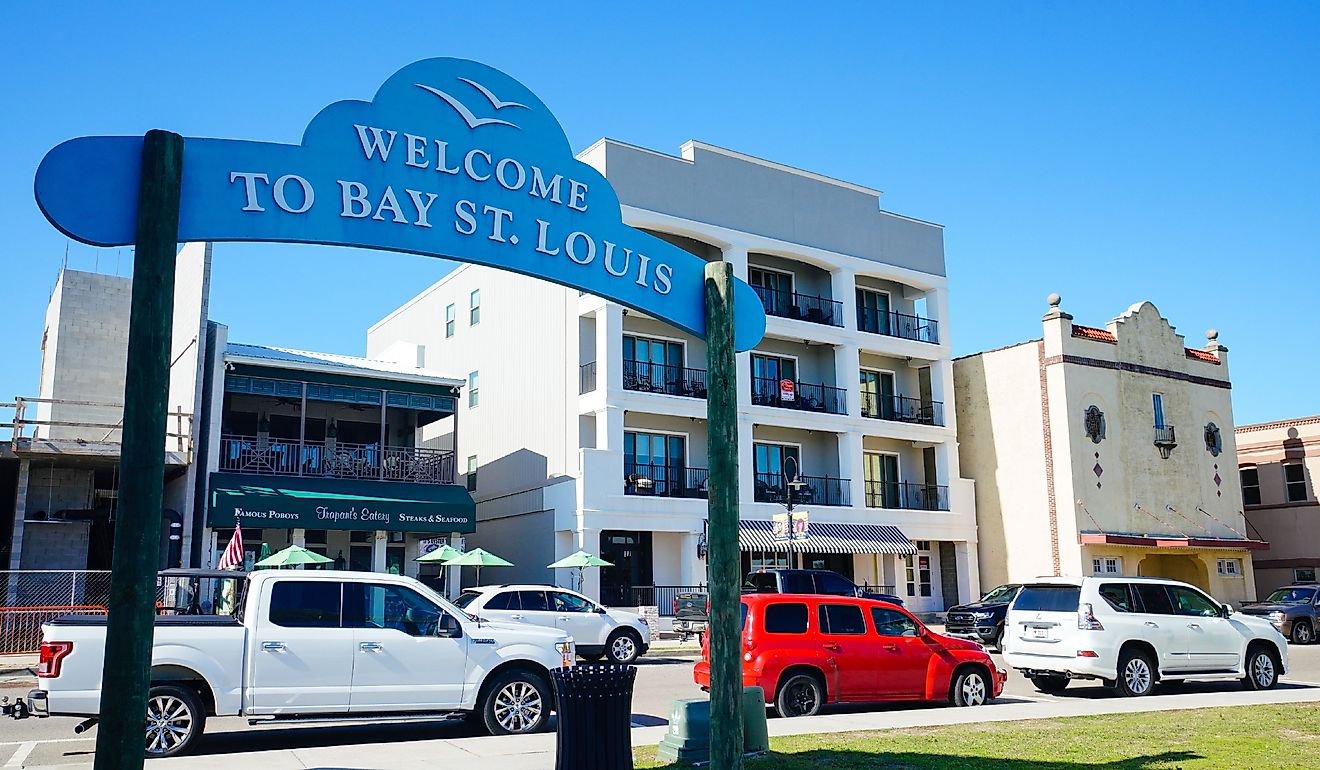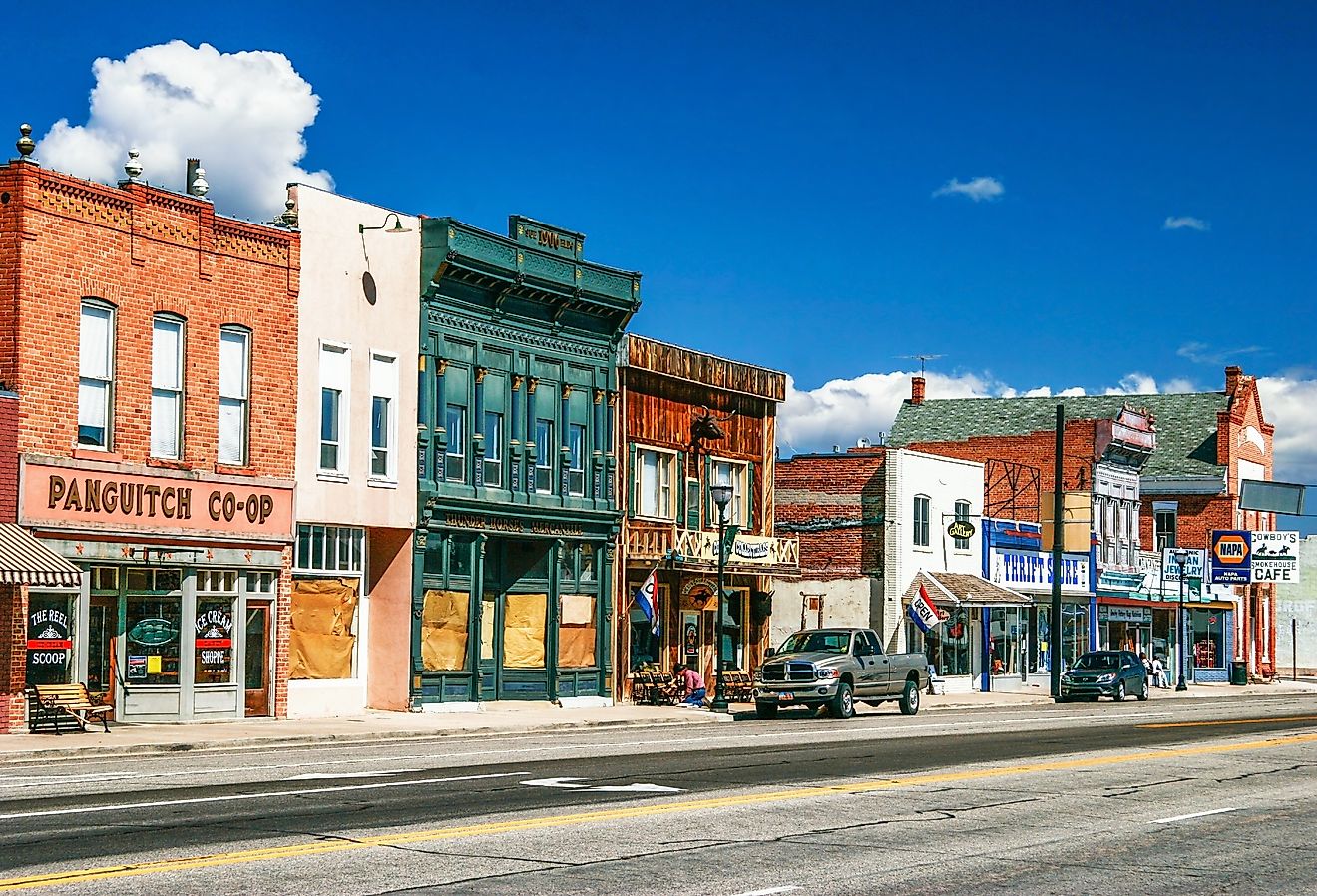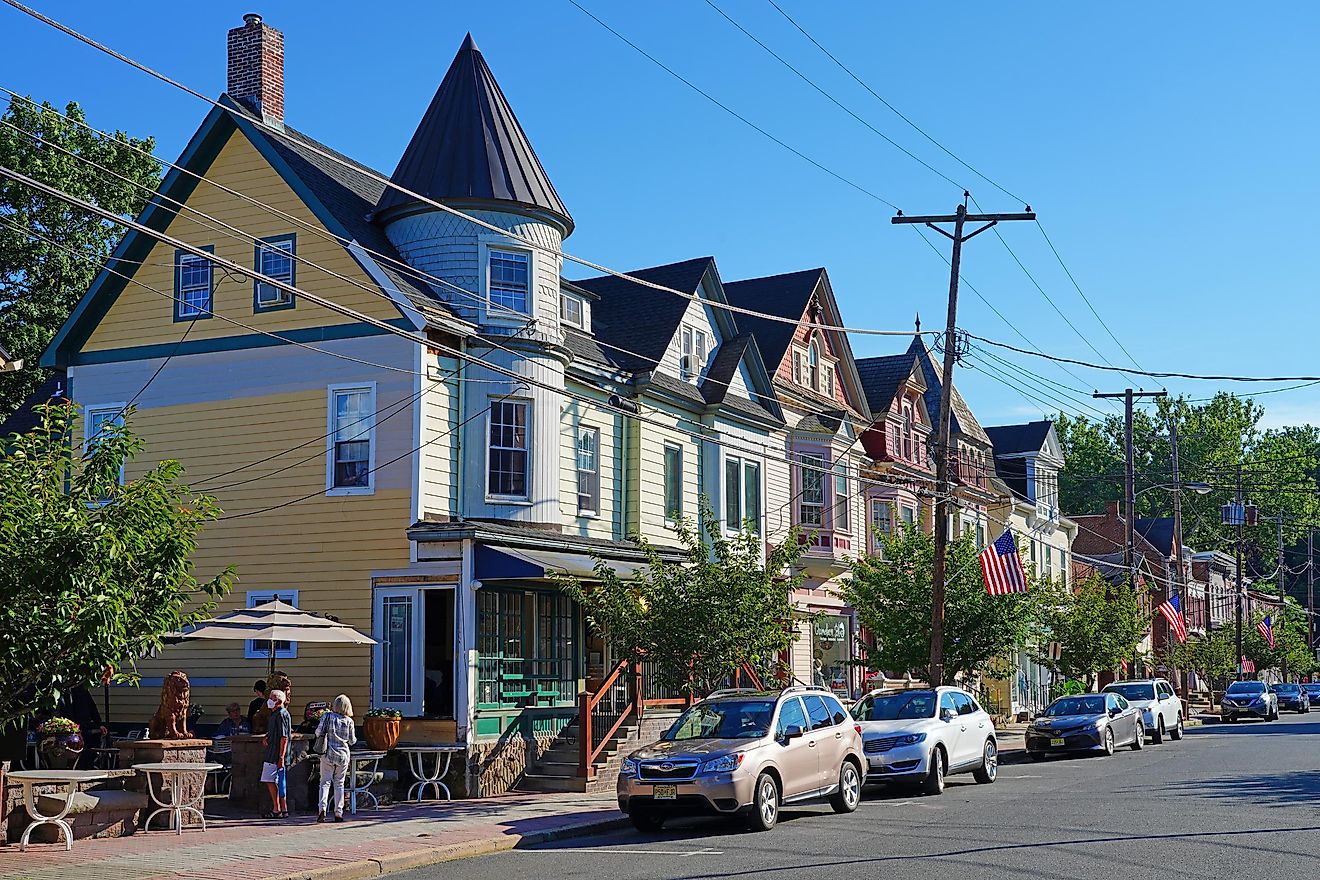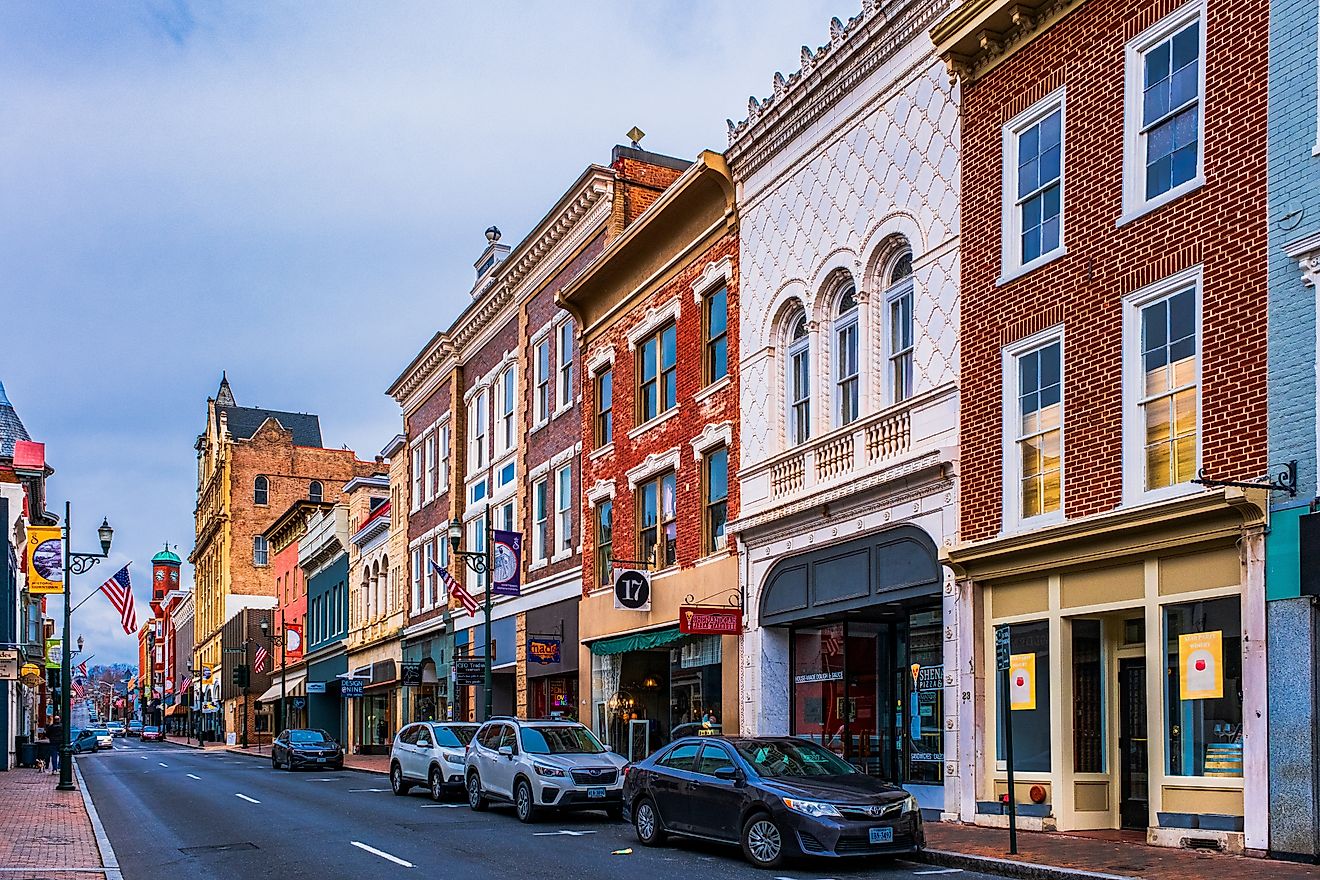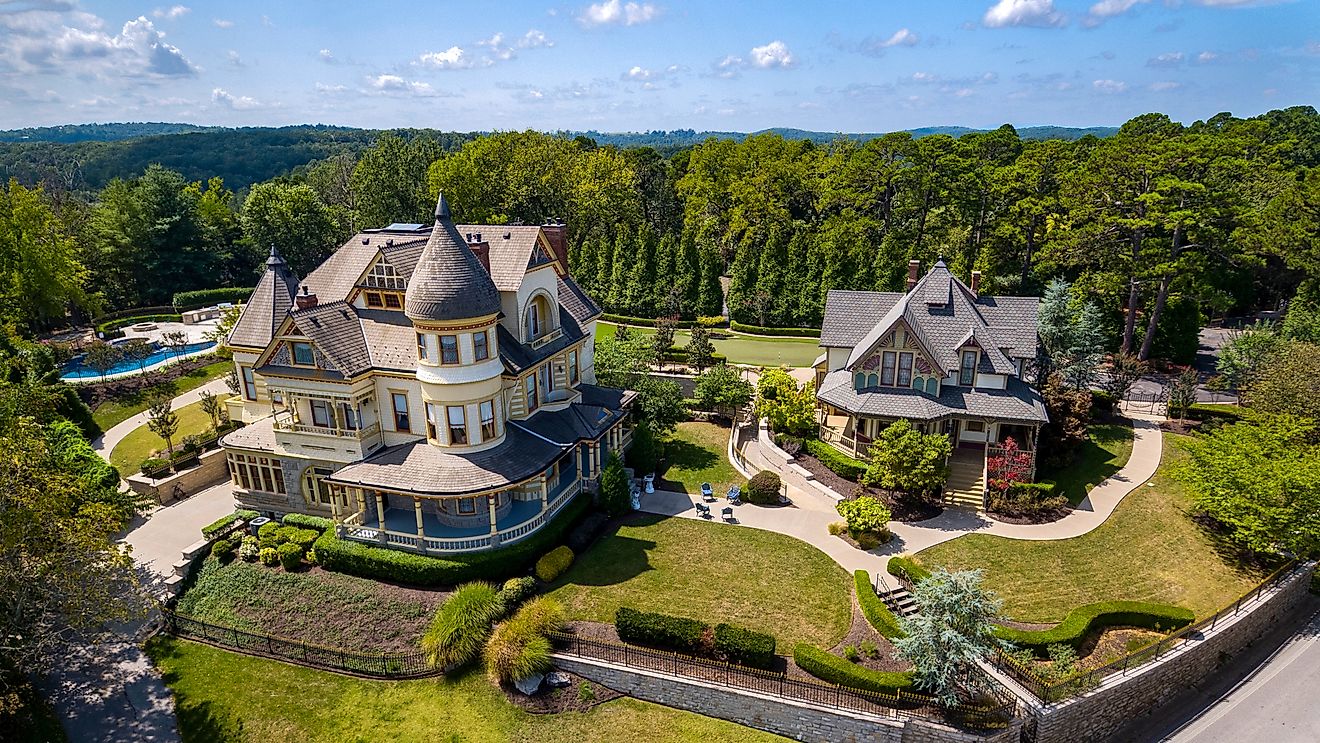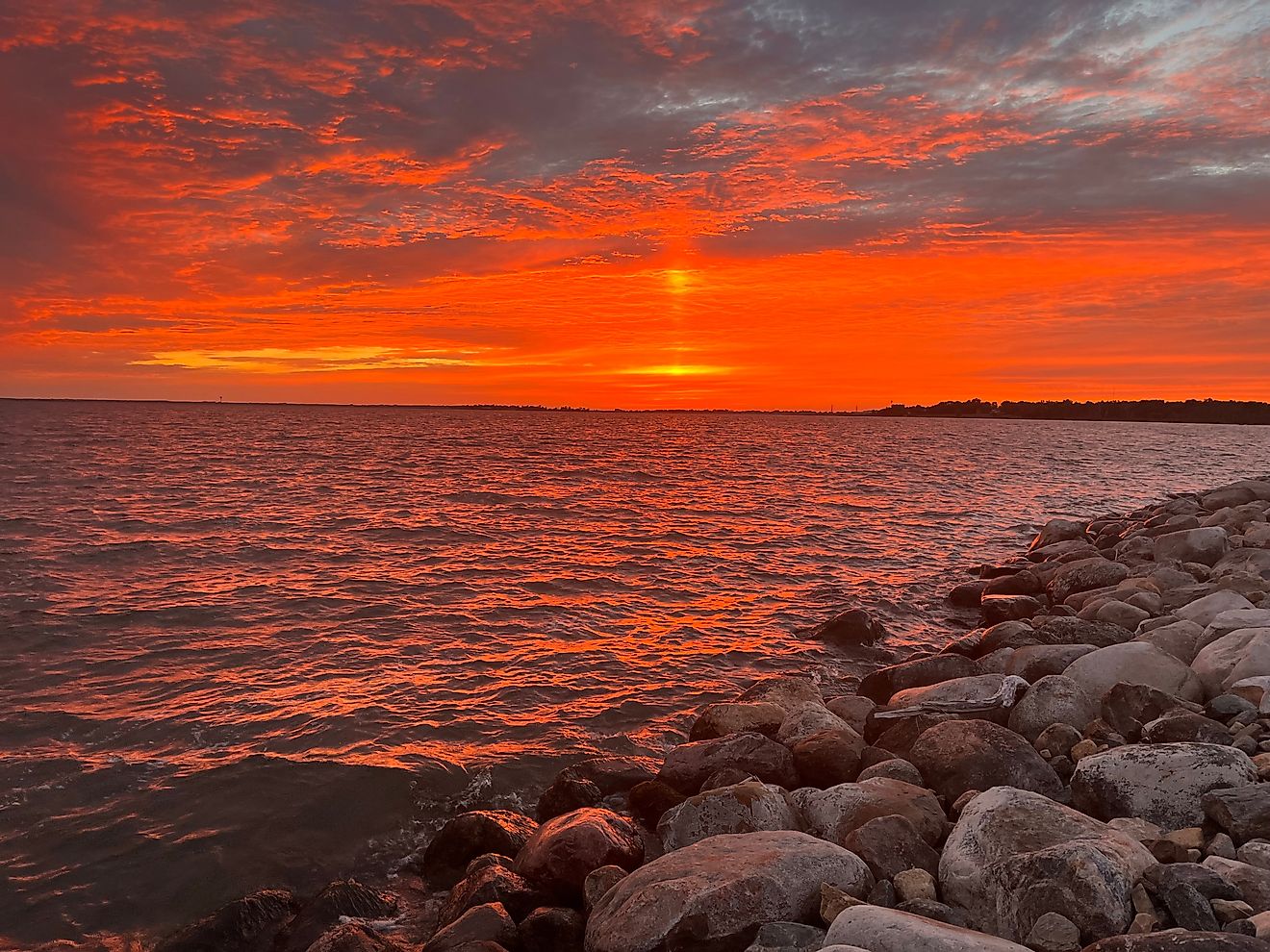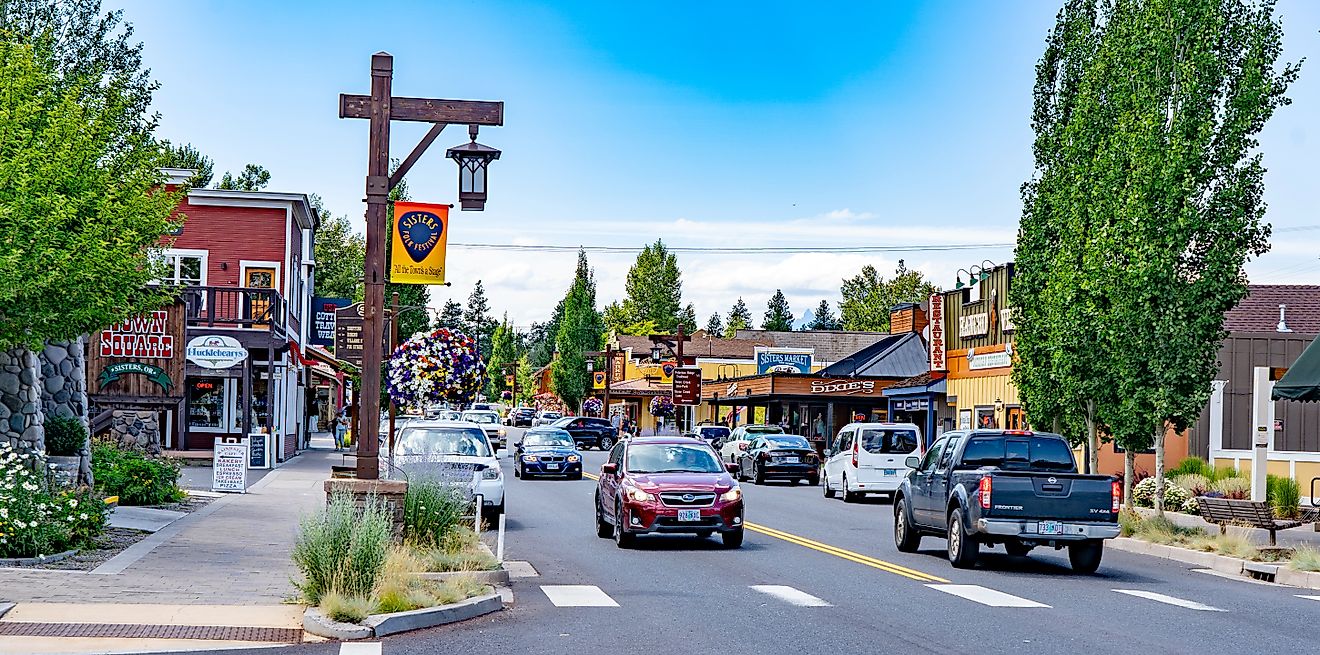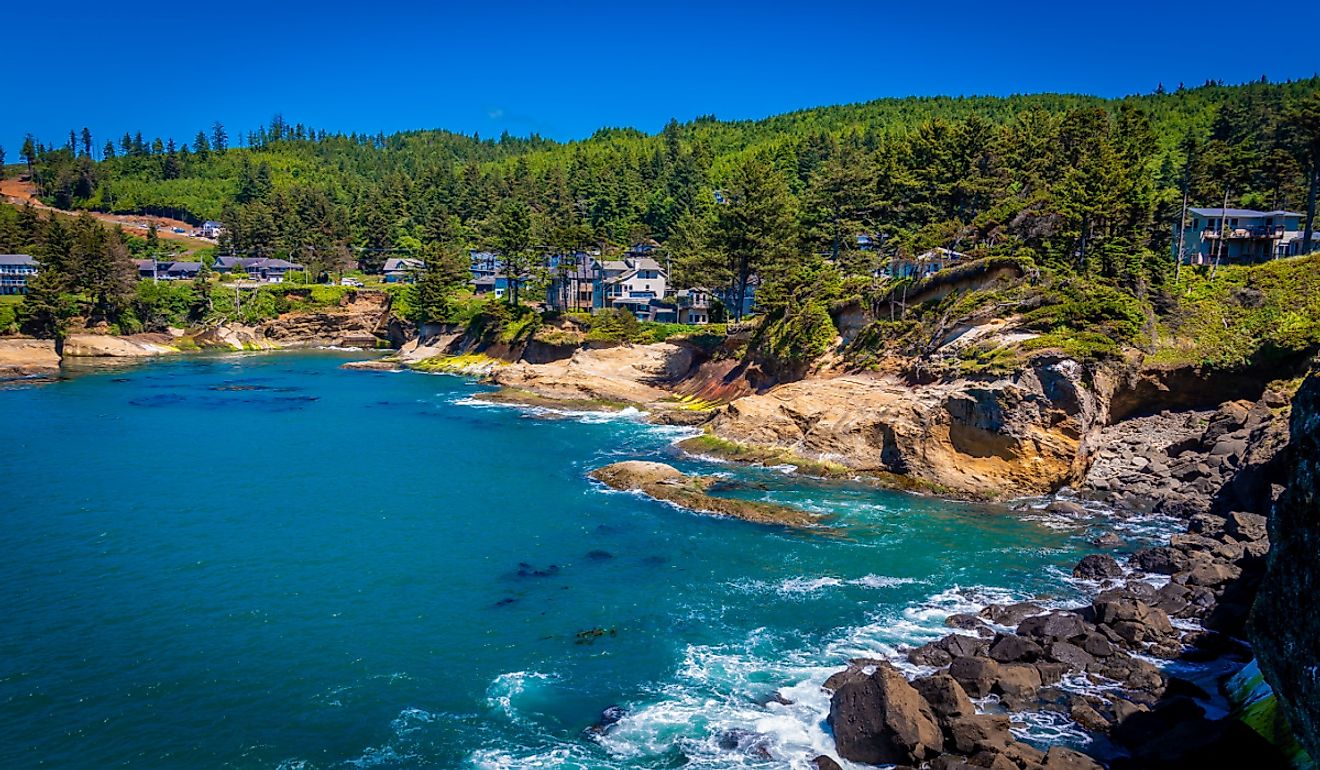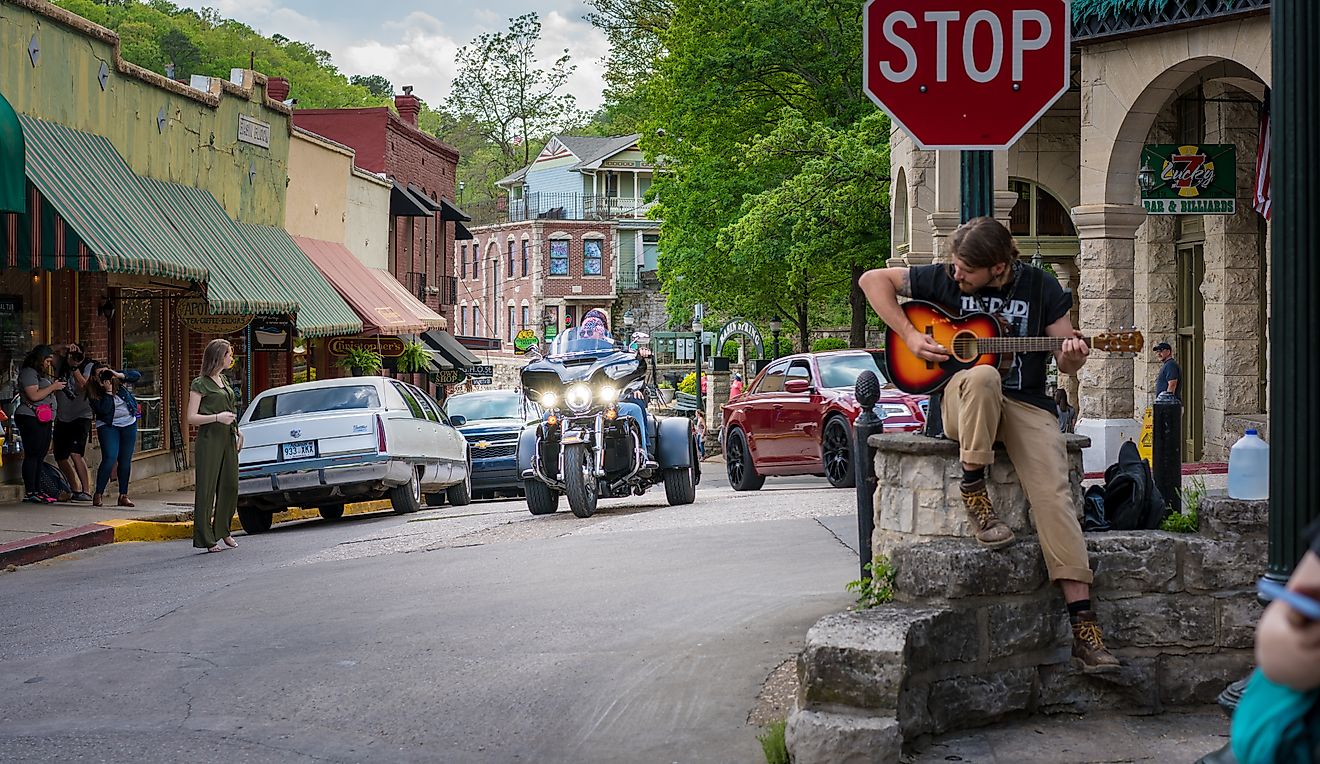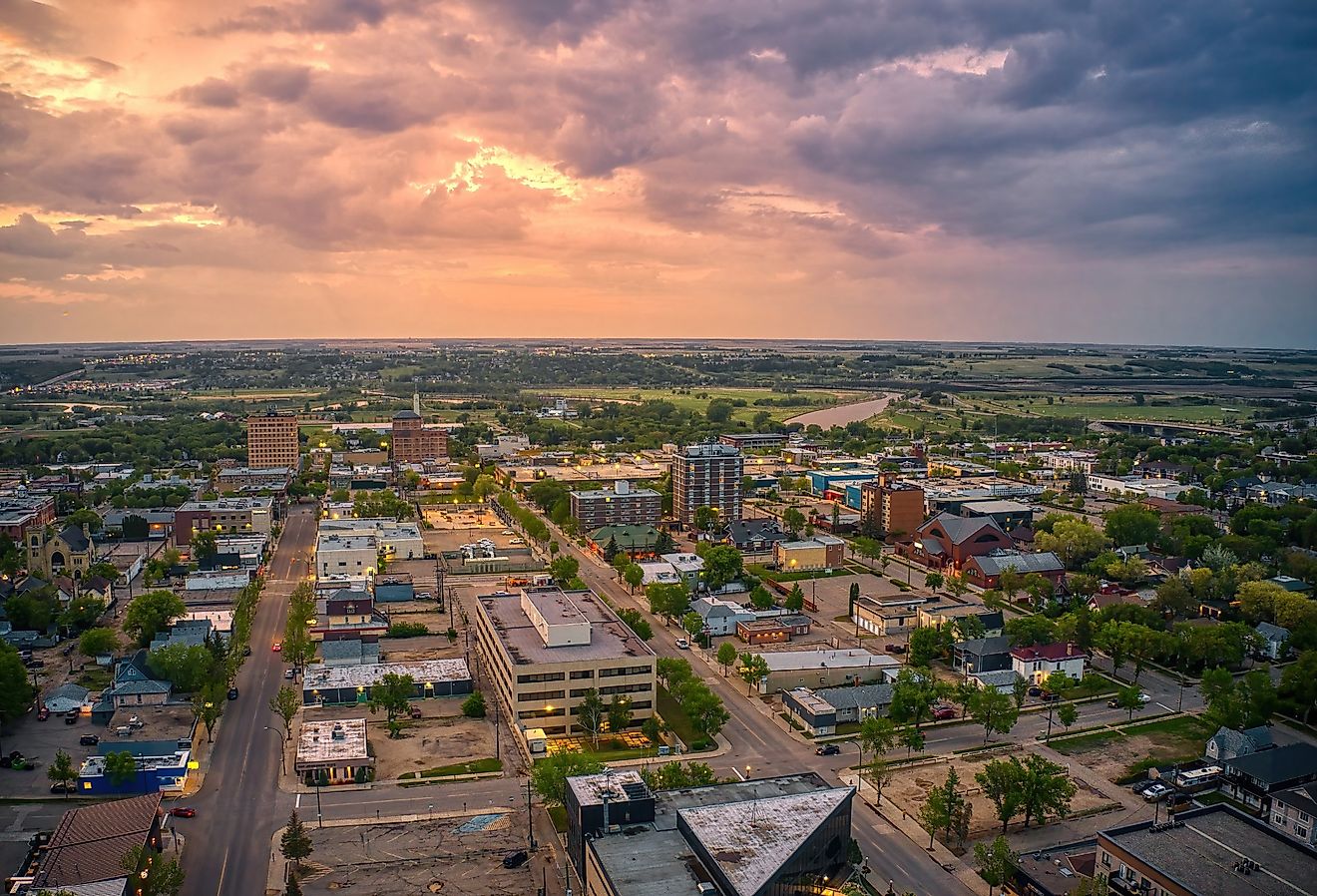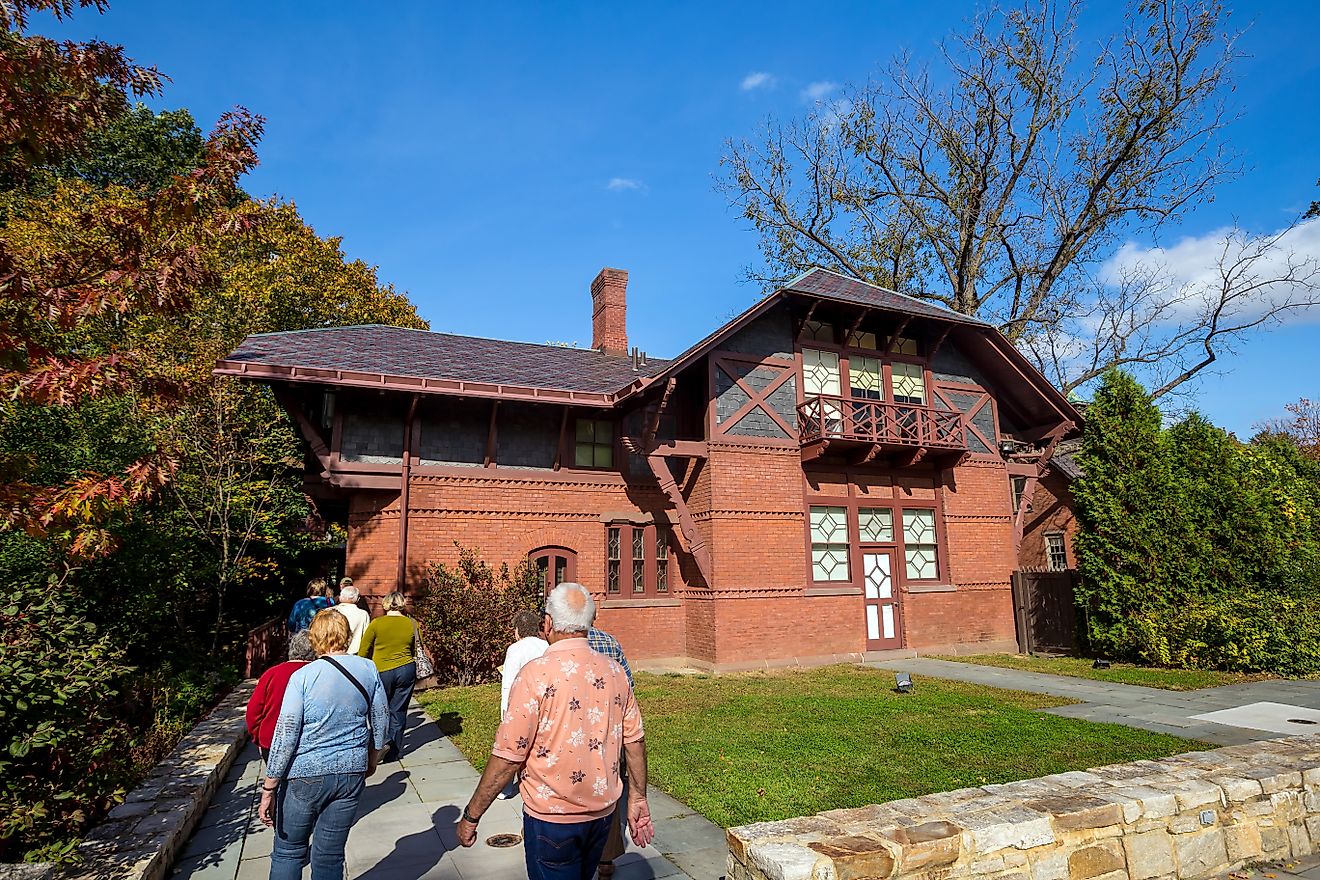
Newport News, Virginia
Located in the Hampton Roads region of Virginia, Newport News is a city known for its rich history and vibrant cultural scene. Since its founding at the beginning of the 17th century, the city has grown to become a significant hub for shipbuilding, trade, and transportation. Various rumors surround the origin of Newport News' name. The name appeared as "Newport Newes" in the Virginia Company records dating back to 1619, making it one of the continent's oldest names.
Geography And Climate Of Newport News

Newport News covers a total area of 309.82 sq. km, of which 178.68 sq. km is occupied by land, and 131.14 sq. km is covered by water. Newport News is located at the Virginia Peninsula's southeastern end, on the northern banks of the James River. Hampton, Williamsburg, Virginia Beach, and the Atlantic Ocean are all accessible from Newport News. About 23 miles of the James River and Hampton Roads Harbor are along Newport News' coastline. The popular neighborhood City Center at Oyster Point is referred to as the city's "new downtown." Riverside, Kiln Creek, Port Warwick, and Hilton Village are some of its popular communities.
Newport News has a humid subtropical climate, experiencing rainy and partly cloudy weather all year long with cold to mild winters and hot, wet summers. The average annual temperature ranges from 32°F to 88°F, with extremes of 20°F or 95°F being extremely rare. The year's warmest month is July, having an average daily temperature of over 80°F. Having an average temperature lower than 56°F, January is the year's coolest month. On average, the city receives 46 inches of rain and 5 inches of snow annually.
History Of Newport News

Warwick County, one of the state's eight original shires established by the House of Burgesses in the British Colony of Virginia by command of King Charles I in 1634, included the region referred to as Newport News. Up until about 250 years later, the region's primary land uses were farming and undeveloped land. The Jamestown colony was carried to the New World in 1607 by a three-ship fleet under the command of Christopher Newport, who was given the name Newport News in his honor. The initial colonists fled Jamestown following the Starving Time of 1610, but they later ran into Captain Newport on the James River and discovered that more soldiers and supplies had arrived, which prompted them to return to Jamestown.
That location became known as the source of Newport's good news, "Newport's News," and ultimately, just Newport News. Before it became the eastern terminal of the Chesapeake and Ohio Railway in the late nineteenth century, Newport News was a little town. It was founded in 1880 and, although never having been constituted as a town, became a city by order of the General Assembly in 1896. In 1958, Newport News and Warwick combined to become a larger city. During World War I, Newport News undoubtedly saw a boom, which served as the foundation for its development into the vibrant city it is today.
The Population And Economy Of Newport News

Newport News is the state's 5th most populous and the country's 140th most populous city. It has a population of 186,247 residents, as per the latest US Census. The city's population has expanded by 0.59% from the previous census and is currently increasing at a pace of 0.30% annually. White (Non-Hispanic) (42.1%), Black or African American (Non-Hispanic) (40%), White (Hispanic) (4.53%), Two+ (Non-Hispanic) (4.51%), and Asian (Non-Hispanic) (3.18%) make up Newport News' top five ethnic groups. Newport News has a 14.83% poverty rate and a $68,792 average household income. The median price of a home during the last few years has been $194,700, and the median monthly rent has been $1075. In Newport News, the median age is 33.5 years, 31.7 years for men, and 35.3 years for women.
The Virginia Peninsula's local economy is driven by the Newport News economy, supported by Newport News Shipbuilding. Newport News is set up for a prosperous economic future in the 21st century and beyond due to strategic planning and a pro-business environment. The manufacturing, defense, research and technology, and office-based sectors of the Newport News economy are well-balanced.
The city's economy greatly depends on the military, with many citizens working at the Newport News Shipbuilding, the U.S. Army installation at Fort Eustis, and other military stations and suppliers. A sizable boating sector can benefit from the area's numerous miles of waterfront, thanks to its location along the James River. One of the areas of the Newport News economy with the quickest growth is the technology sector. The unequaled mix of a highly skilled workforce, low cost of doing business, and a pleasant and exciting array of lifestyle facilities draw technology-oriented businesses to Newport News.
Attractions In And Around Newport News
The Mariners’ Museum And Park

America's National Maritime Museum, commonly known as the Mariners' Museum and Park, is devoted to nautical and maritime history. The museum, which was founded in the 1930s by Archer Milton Huntington and Homer L. Ferguson, examines naval history from the time of European exploration to the present-day United States Navy. Over 35,000 marine artifacts, including antique ships, ship models, old documents, and paintings, are on display at the museum, which also houses the most extensive naval library in the Western Hemisphere.
Virginia Living Museum

If you enjoy nature and all things linked to wildlife, the Virginia Living Museum is the place to visit. The museum displays the native flora and wildlife, and you may find a variety of animals here, including bald eagles, red wolves, and sea turtles. The displays here range from swampy regions to coves and inlets. There is also an observatory and a planetarium on the premises where you may learn everything about the night sky. Self-guided tours of the nature gardens, a boardwalk, and a greenhouse are some of the other things to do here.
Newport News Park

One of the country's biggest parks, Newport News Park, covers 8,000 acres and has two freshwater reservoirs. In addition to a variety of local animals like otters, beavers, deer, foxes, and raccoons, this natural paradise is home to floral meadows, verdant marshes, and luxuriant forests. Recreational activities are available here for all as well. There are disc golf courses, five-star archery ranges, ropes courses, golf courses, horse show arenas with stages, and more than 30 miles of hiking and mountain bike trails among the amenities.
Virginia War Museum

The Virginia War Museum is committed to preserving American military history by collecting a variety of rare historical artifacts dating back to 1775. The museum, which has numerous exhibits and displays, is situated in Huntington Park Beach. Personal things, weapons, uniforms, vehicles, posters, documents, and other U.S. military-related materials dating from 1775 to the present are some of its features. A fragment of the Berlin Wall, as well as a piece of the wall from the German concentration camp Dachau, are among the place's distinguishing features.
Newport News Victory Arch

The Newport News Victory Arch was erected in 1919 in honor of those who lost their lives in the American military services during times of war. An everlasting flame (a gift from the American Legion) was installed on the arch on Memorial Day in 1969 after the monument in Victory Landing Park underwent reconstruction in 1962. Today, the Newport News Victory Arch serves as a memorial for all members of the armed services (men and women), with an eternal flame that never goes out.
